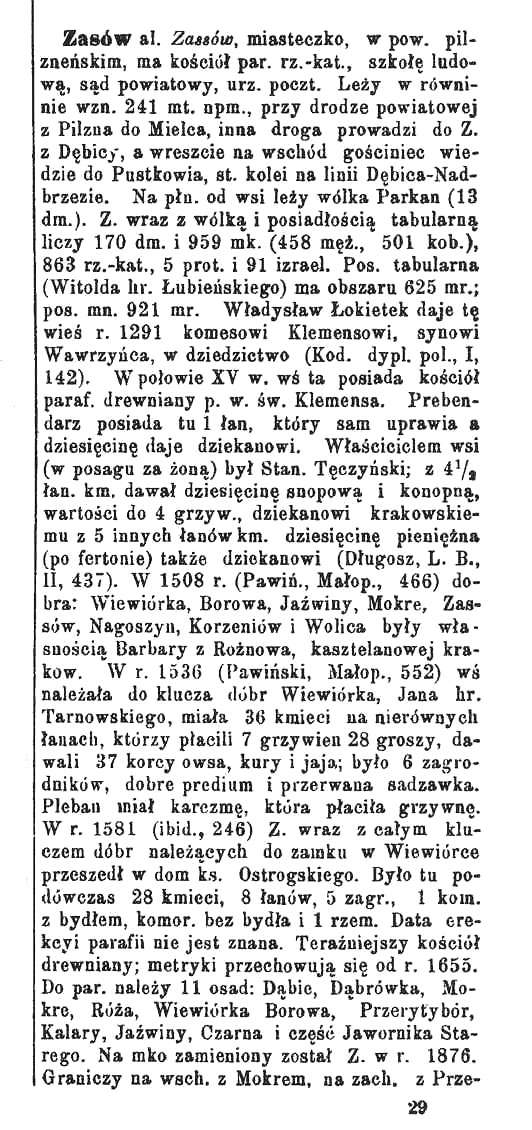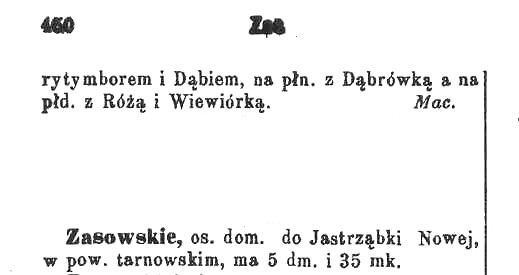
|

|

 |
 |
| Zasow, or Zassow, a small town in Pilzno county has a wooden Roman Catholic church, public school, county court house, and post office. It is located on a flat plain 241 meters above sea level, on the road from Pilzno to Mielec, another road leads from Debica to Zasow, from the east a road leads to the Pustkowie railroad station on the Debica-Nadbrzezie (ed.: Mielec) line. To the north is the hamlet of Parkan (13 houses). Zasow, together with the hamlet and noble estate, has 170 houses and 959 residents (458 males, 501 females) comprised of 863 Roman Catholics, 5 Protestants, and 91 Jews. The noble estate (of Baron Witold Lubienski) has an area of 625 morgs, the portion belonging to farmers is 921 morgs. King Wladyslaw Lokietek gave this village as inheritance in 1291 to Klemens, son of Wawrzyniec. In the middle if the 15th Century, the village had a wooden parish church dedicated to Saint Klemens. The pastor has 1 lan of farmland that he works by himself and he pays a tithe to the decanate. The owner of the village was Stanislaw Teczynski; from 4.5 lans he gave sheaf and hemp with a value of up to 4 grzywnas to the decanate of Krakow, from 5 other lans *********, from each lan to the deacon. (Dlugosz, L.B. II, 437). In 1508 (Pawinski, Malopolska, 466) the estates of Wiewiorka, Borowa, Jazwiny, Mokre, Zasow, Nagoszyn, Korzeniow, and Wolica belonged to Barbara of Roznow, the kasztelanowa of Krakow. In 1536 (Pawinski, Malopolska, 552) the village belonged to the key estates of Wiewiorka under Baron Jan Tarnowski and had 36 peasants on unevenly divided farmland. They paid rent of 7 grzywnas, 28 groszy, 37 measures of oats, chickens, and eggs. There were 6 farmers, good predium and some ponds. The pastor had a ***** that paid a fee. In 1581 (ibid., 246) Zasow and the whole key of estates belonging to Wiewiorka was transfered to Prince Ostrogski. There were 28 peasants, 8 lans, 5 houses, 1 public building. |
| Contributed by: Diana Grzelak Needham Translated by: Grace Skowron |
All of the Spuscizna websites, webpages, maps, and research are provided completely by volunteers. We charge no fees and we incur no expenses.
Our cornerstone is sharing. This is family history research the way it should be - free of charge. And that's merely cordial Polish hospitality.
![]()
Dennis Benarz, Chicagoland USA 2004
E-mail:
spuscizna@catholic.org
.
.
.